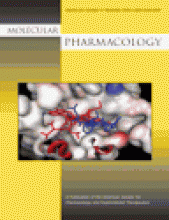Abstract
Yondelis is a potent DNA-binding anticancer drug isolated from the tunicate Ecteinascidia turbinata currently undergoing phase III clinical trials. We and others have shown selective inhibition to the transcriptional induction of several genes. We tested the hypothesis that Yondelis specifically targets cell-cycle genes. Our analysis on endogenous and transfected reporter systems revealed complex patterns of transcriptional inhibition and, surprisingly, activation. Other inducible systems—the metallothionein and the CYP3A4 promoters—were little affected. We assayed whether interference of DNA binding of the common nuclear factor Y (NF-Y) activator was responsible for the observed inhibition: in vivo chromatin immunoprecipitation analysis in NIH3T3 and HCT116 cells indicates that NF-Y binding is little affected by Yondelis addition. Finally, histone acetylation was modestly affected only on Cdc2 and cyclin B2 but not on other repressed promoters. These data prove that Yondelis is not a general inhibitor of inducible genes, and its selective effects are exerted downstream from transcription factors binding and histone acetyl transferases recruitment.
- Received April 12, 2005.
- Accepted June 16, 2005.
- The American Society for Pharmacology and Experimental Therapeutics
MolPharm articles become freely available 12 months after publication, and remain freely available for 5 years.Non-open access articles that fall outside this five year window are available only to institutional subscribers and current ASPET members, or through the article purchase feature at the bottom of the page.
|






